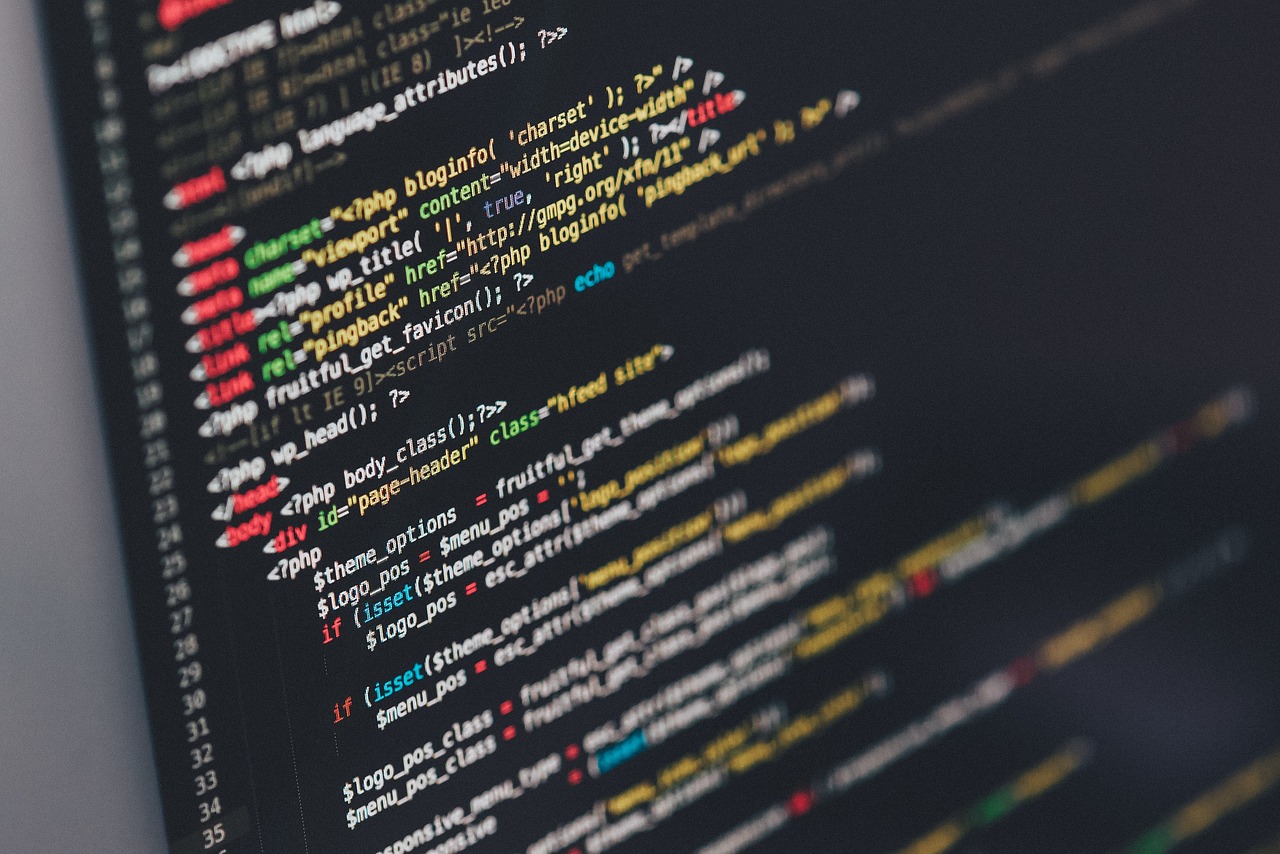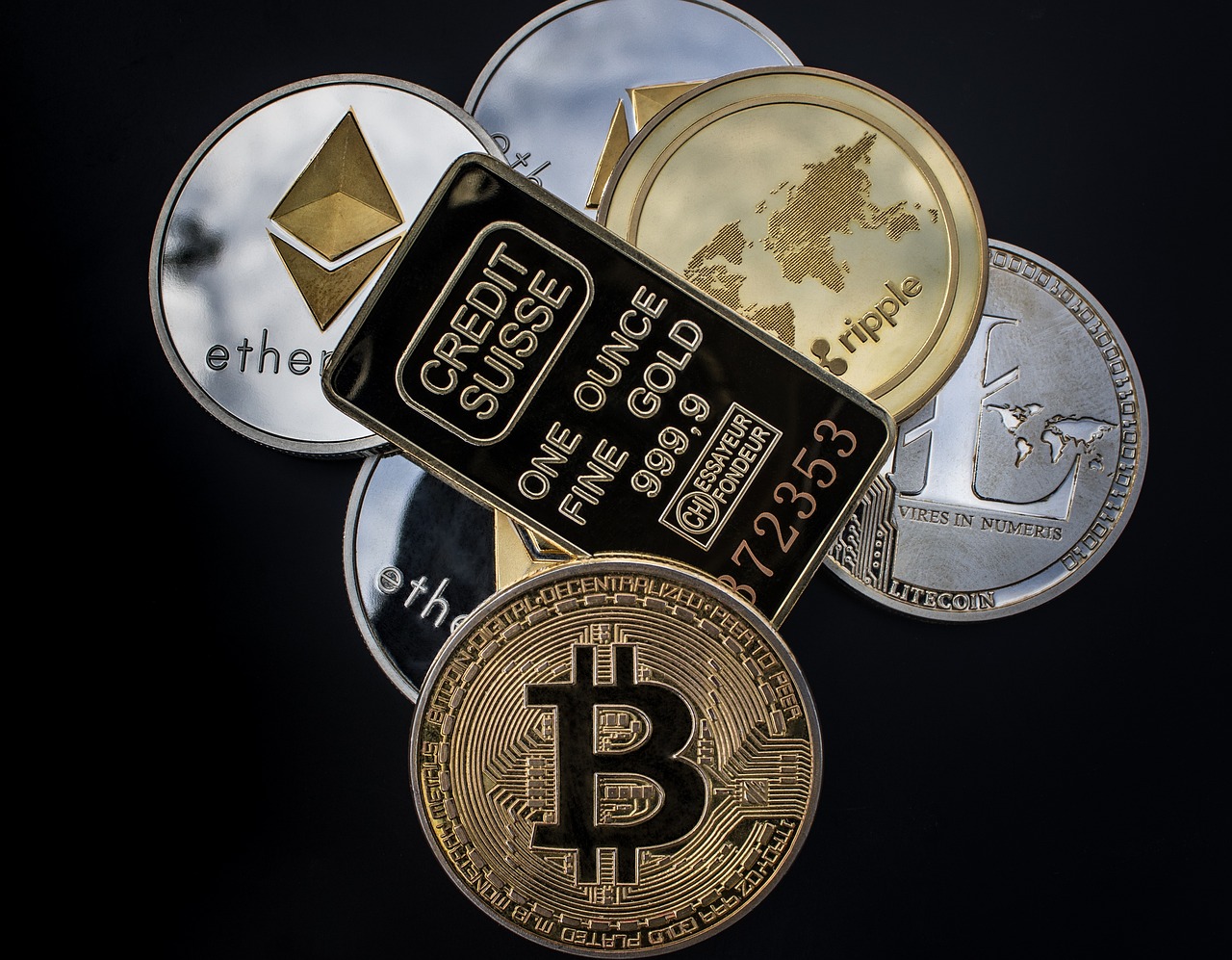Understanding the Intersection of Blockchain and Privacy Laws
In today's digital age, the emergence of blockchain technology has revolutionized the way we think about data management, transactions, and security. However, as this innovative technology gains traction, it also raises profound questions regarding privacy laws. With the ability to create immutable records that are transparent and decentralized, blockchain presents both opportunities and challenges for data protection regulations worldwide. The intersection of these two realms—blockchain and privacy laws—demands a closer examination, especially as we navigate an increasingly complex landscape where personal data protection is more crucial than ever.
At its core, blockchain is a distributed ledger technology that allows multiple parties to access and verify transactions without the need for a central authority. This decentralization is one of its key features, promoting trust and transparency. However, this very characteristic can pose unique challenges for privacy laws designed to protect individuals' personal information. For instance, how do we reconcile the need for data permanence in blockchain with individuals’ rights to have their data deleted? This question is at the heart of many legal discussions today.
Furthermore, privacy laws like the General Data Protection Regulation (GDPR) in Europe and the California Consumer Privacy Act (CCPA) in the United States aim to empower consumers by granting them control over their personal data. They establish strict guidelines on how organizations can collect, store, and process this information. Yet, the immutable nature of blockchain can conflict with these regulations, particularly concerning the right to be forgotten. This creates a fascinating but challenging dynamic that organizations must navigate as they seek to leverage blockchain technology while remaining compliant with privacy laws.
As we delve deeper into this topic, we will explore the fundamental principles of both blockchain technology and privacy laws. We will also examine the implications for organizations that are trying to implement blockchain solutions while adhering to regulations designed to protect consumer privacy. The future of digital identity in a decentralized world hangs in the balance, and understanding this intersection is essential for businesses, regulators, and consumers alike.

The Basics of Blockchain Technology
Blockchain technology is often hailed as a revolutionary force in the digital landscape, fundamentally changing how we perceive and manage data. At its core, blockchain is a decentralized ledger that records transactions across multiple computers in such a way that the registered transactions cannot be altered retroactively. Imagine a digital notebook that everyone can see but no one can change without consensus. This is the essence of blockchain—transparency combined with security.
One of the key features of blockchain is its immutability. Once a transaction is recorded on the blockchain, it becomes a permanent part of the ledger. This characteristic ensures that data integrity is maintained, which is crucial for applications where trust is paramount, such as financial services or supply chain management. However, this permanence also presents unique challenges when it comes to privacy laws, as individuals may wish to have their data erased or modified, which conflicts with the very nature of blockchain.
Another important aspect of blockchain is transparency. All participants in the network can view the entire history of transactions, which fosters accountability. However, this transparency can conflict with privacy requirements. For instance, while businesses can benefit from the ability to verify transactions, individuals may not want their personal data to be publicly accessible. This dichotomy raises critical questions about how blockchain can be used responsibly while adhering to legal standards.
Furthermore, blockchain operates on a consensus mechanism, which is a process that ensures all participants in the network agree on the validity of transactions. Different blockchains use various consensus models, such as Proof of Work or Proof of Stake, each with its own strengths and weaknesses. Understanding these mechanisms is vital for organizations looking to implement blockchain solutions, as they directly impact the network's security, efficiency, and scalability.
In summary, while blockchain technology offers exciting possibilities for innovation and efficiency, it also presents significant challenges, particularly in relation to privacy laws. As we delve deeper into this intersection, we must consider how these technologies can coexist in a way that respects individual rights while harnessing the power of decentralization.

Privacy Laws Overview
In today’s rapidly evolving digital landscape, privacy laws have emerged as a critical framework to protect individuals' personal data. With the rise of technology, particularly in areas like blockchain, understanding these laws has never been more important. Privacy laws are designed to give individuals control over their personal information and ensure that organizations handle this data responsibly. Among the most significant privacy regulations globally are the General Data Protection Regulation (GDPR) in Europe and the California Consumer Privacy Act (CCPA) in the United States. These laws not only set high standards for data protection but also impose stringent obligations on businesses that collect and process personal data.
The GDPR, which came into effect in May 2018, is known for its robust approach to data privacy. It applies to any organization that processes the personal data of EU citizens, regardless of where the organization is based. The primary objective of GDPR is to enhance individuals' rights regarding their personal data and to hold organizations accountable for data breaches. On the other hand, the CCPA, enacted in January 2020, focuses on the rights of California residents, granting them the ability to know what personal data is being collected, to whom it is being sold, and the right to request deletion of their data.
Both GDPR and CCPA represent a shift towards greater transparency and accountability in data handling. However, the decentralized nature of blockchain poses unique challenges for compliance with these regulations. For instance, the immutability of blockchain records can conflict with the GDPR's "right to be forgotten," which allows individuals to request the deletion of their personal data. This paradox creates a complex legal landscape that businesses must navigate carefully to avoid penalties and maintain consumer trust.
To further illustrate the differences and similarities between these two pivotal privacy laws, we can consider the following table:
| Aspect | GDPR | CCPA |
|---|---|---|
| Scope | Applies to all organizations processing EU citizens' data | Applies to businesses collecting data from California residents |
| Consumer Rights | Right to access, rectify, erase, and restrict processing | Right to know, delete, and opt-out of data sales |
| Penalties for Non-Compliance | Fines up to €20 million or 4% of annual global turnover | Fines up to $7,500 per violation |
As we delve deeper into the implications of these laws on blockchain technology, it becomes evident that organizations must develop innovative strategies to ensure compliance while leveraging the benefits of decentralization. The interplay between privacy laws and blockchain technology is complex, requiring a nuanced understanding of both to navigate successfully.

General Data Protection Regulation (GDPR)
The is a landmark piece of legislation that was enacted in May 2018, fundamentally reshaping the way organizations handle personal data across Europe and beyond. Its primary objective is to enhance individuals' control over their personal information while ensuring that organizations are held accountable for their data practices. For businesses leveraging blockchain technology, understanding GDPR is crucial, as it introduces a series of requirements that can complicate the integration of decentralized systems with traditional data protection frameworks.
One of the core principles of GDPR is the emphasis on data minimization. This means that organizations should only collect and process personal data that is necessary for their specific purposes. However, the inherent nature of blockchain—where data is often permanently recorded and accessible—poses a significant challenge to this principle. How can organizations ensure they are not retaining more data than necessary when the blockchain is designed to be immutable? This question is at the heart of the compliance challenges faced by organizations utilizing blockchain for data management.
Moreover, GDPR mandates that individuals must give explicit consent for their data to be processed. This requirement can conflict with the decentralized ethos of blockchain, where user identities are often anonymized. If a blockchain application collects personal data, it must ensure that users are fully informed about what data is being collected and how it will be used. This can create a paradox: while blockchain promotes transparency and trust through its ledger, it must also navigate the complexities of obtaining and managing user consent.
To further illustrate the implications of GDPR for organizations using blockchain, consider the following key requirements:
- Right to Access: Individuals have the right to request access to their personal data held by organizations.
- Right to Erasure: Often referred to as the "right to be forgotten," this allows individuals to request the deletion of their personal data.
- Data Portability: Users can request their data in a structured, commonly used format, enabling them to transfer it to another service provider.
Organizations that fail to comply with GDPR can face severe repercussions, including hefty fines that can reach up to €20 million or 4% of their annual global turnover, whichever is higher. This not only affects their financial standing but can also severely damage their reputation. In the realm of blockchain, where trust is paramount, non-compliance can lead to a loss of user confidence and a significant reduction in user adoption.
In summary, while the GDPR aims to protect individuals' privacy and personal data, its requirements can create significant hurdles for organizations looking to implement blockchain technology. The tension between the immutable, transparent nature of blockchain and the regulatory demands of GDPR presents a complex landscape that requires innovative solutions and careful navigation.
- What is GDPR? GDPR is a regulation in EU law on data protection and privacy that aims to give individuals control over their personal data.
- How does GDPR affect blockchain technology? GDPR introduces challenges for blockchain, particularly concerning data minimization and the right to be forgotten.
- What are the penalties for non-compliance with GDPR? Organizations can face fines up to €20 million or 4% of their annual global turnover for failing to comply with GDPR.

Key Principles of GDPR
The General Data Protection Regulation (GDPR) is a comprehensive framework designed to protect individuals' personal data within the European Union. At its core, GDPR is anchored on several key principles that guide how organizations must handle personal data. Understanding these principles is crucial for businesses, especially those leveraging blockchain technology, as they navigate the complexities of compliance.
One of the foundational principles of GDPR is data minimization. This principle emphasizes that organizations should only collect and process personal data that is absolutely necessary for their specific purpose. Imagine walking into a store and finding that they only ask for your name and email when you make a purchase, rather than your entire life story. This not only respects your privacy but also reduces the risk of data breaches.
Another essential principle is user consent. GDPR mandates that individuals must give clear and explicit consent for their data to be processed. This means no more vague terms and conditions; organizations must be transparent about how they intend to use your data. Think of it as a handshake agreement where both parties understand the terms. For blockchain applications, obtaining this consent can be tricky, especially when data is stored immutably on a public ledger.
Additionally, GDPR introduces the principle of purpose limitation. This principle states that data collected for one specific purpose cannot be repurposed for another without the individual’s consent. It’s like borrowing a book from a friend; you can’t just decide to turn it into a movie without asking them first!
The principle of storage limitation also plays a critical role in GDPR. Organizations are required to keep personal data only for as long as necessary to fulfill its intended purpose. If you think about it, holding onto personal data longer than needed is like keeping expired food in your fridge—it can lead to contamination and problems down the line.
Lastly, the principles of integrity and confidentiality emphasize the need for organizations to implement appropriate security measures to protect personal data against unauthorized access or breaches. It’s akin to locking your doors at night; you want to ensure that your personal space remains safe from intruders.
In summary, the key principles of GDPR create a framework that prioritizes the rights of individuals while imposing stringent requirements on organizations. For blockchain developers and businesses, adhering to these principles is not just about compliance; it’s about fostering trust in a digital age where data breaches are all too common.
- What is the main purpose of GDPR? GDPR aims to protect individuals' personal data and privacy in the digital age, ensuring that organizations handle data responsibly and transparently.
- How does GDPR affect blockchain technology? GDPR presents challenges for blockchain technology due to its immutable nature, which can conflict with principles like the right to be forgotten.
- What are the penalties for non-compliance with GDPR? Organizations that fail to comply with GDPR can face hefty fines, reaching up to 4% of their annual global turnover or €20 million, whichever is higher.
- Can individuals request their data to be deleted under GDPR? Yes, individuals have the right to request the deletion of their personal data under certain conditions, known as the right to be forgotten.

Implications of Non-Compliance
In the ever-evolving landscape of technology and law, the implications of non-compliance with privacy regulations like the GDPR can be particularly severe, especially for organizations utilizing blockchain technology. Imagine investing significant resources into a blockchain solution only to face devastating penalties because of a failure to adhere to legal standards. The stakes are incredibly high, and understanding these implications is crucial for businesses operating in this space.
First and foremost, organizations that fail to comply with GDPR can face hefty fines. The regulation allows for penalties of up to €20 million or 4% of annual global turnover, whichever is higher. This can be a staggering amount, especially for startups and smaller companies that may not have the financial cushion to absorb such losses. These fines are not merely theoretical; numerous companies have already faced significant financial repercussions for non-compliance, sending ripples through the industry.
Beyond financial penalties, non-compliance can lead to serious reputational damage. In today’s digital age, trust is paramount. If a company is publicly reprimanded for mishandling personal data, consumer confidence can plummet. This loss of trust can result in decreased customer loyalty and a tarnished brand image, which can take years to rebuild. In a world where consumers are increasingly aware of their data rights, the fallout from non-compliance can be catastrophic.
Additionally, organizations may face legal repercussions beyond just fines. Non-compliance can lead to lawsuits from affected individuals who believe their data rights have been violated. This not only adds to the financial burden but also places a strain on legal resources and can distract from core business operations. The complexity of navigating these legal challenges can be overwhelming, especially for companies that are not well-versed in data protection laws.
Moreover, the implications extend to operational challenges. Companies may need to invest in significant changes to their data management practices, which can be costly and time-consuming. For instance, if a blockchain solution is deemed non-compliant, organizations might have to overhaul their systems to ensure they can effectively manage user consent and data deletion requests. This could lead to delays in product launches or updates, putting them at a competitive disadvantage.
In summary, the implications of non-compliance with privacy laws for blockchain-based organizations are multifaceted and far-reaching. From financial penalties and reputational damage to legal challenges and operational hurdles, the risks are substantial. As such, it is essential for businesses to proactively seek compliance, integrating robust data protection strategies into their blockchain solutions. By doing so, they not only safeguard themselves against potential repercussions but also build a foundation of trust with their users.
- What are the main consequences of non-compliance with GDPR?
Non-compliance can lead to significant fines, reputational damage, legal repercussions, and operational challenges. - How can organizations ensure compliance with privacy laws while using blockchain?
Organizations should integrate robust data protection strategies, conduct regular audits, and stay informed about legal requirements. - What is the importance of user consent in blockchain applications?
User consent is a core principle of GDPR, and ensuring it is crucial for compliance and maintaining consumer trust.

California Consumer Privacy Act (CCPA)
The is a landmark piece of legislation that empowers California residents with greater control over their personal information. Enacted in January 2020, the CCPA represents a significant step forward in consumer privacy rights, setting a precedent that many other states are now looking to emulate. But what does this mean for businesses, especially those leveraging blockchain technology? Well, it introduces a complex web of compliance requirements that organizations must navigate carefully.
At its core, the CCPA aims to provide consumers with the right to know what personal data is being collected about them, the ability to access that data, and the option to request its deletion. This is particularly relevant for blockchain-based businesses, where data immutability and transparency can clash with the very essence of consumer rights outlined by the CCPA. In essence, while blockchain promises security and trust, it also raises questions about how personal data can be managed in a way that respects individual privacy.
One of the key features of the CCPA is its focus on consumer rights. Under this legislation, consumers have the right to:
- Know what personal data is being collected about them.
- Access their personal data.
- Request deletion of their personal data.
- Opt-out of the sale of their personal data.
For organizations utilizing blockchain, these rights can create a dilemma. The immutable nature of blockchain means that once data is recorded, it cannot be altered or deleted. This poses a significant challenge when considering the CCPA's "right to be forgotten." How can a blockchain-based system comply with a law that requires the deletion of personal data? This question is at the heart of ongoing discussions among legal experts and blockchain developers alike.
Moreover, the CCPA applies not only to businesses operating within California but also to any company that collects personal data from California residents, regardless of where the business is located. This broad scope means that businesses must be vigilant about their data practices, especially those that utilize decentralized networks. Failure to comply with CCPA can result in hefty fines, making it essential for blockchain companies to develop strategies that align their operations with these regulatory requirements.
In conclusion, while the CCPA presents some challenges for organizations employing blockchain technology, it also offers an opportunity for innovation. Companies can explore new methods of data management that respect consumer rights while still leveraging the benefits of blockchain. As we move forward, it will be fascinating to see how businesses adapt to these regulations, ensuring they can provide transparency and security while honoring the privacy rights of individuals.
- What is the CCPA? The California Consumer Privacy Act is a law that enhances privacy rights and consumer protection for residents of California.
- How does the CCPA affect blockchain technology? The CCPA introduces compliance challenges for blockchain companies due to the immutable nature of blockchain data.
- What rights do consumers have under the CCPA? Consumers have the right to know, access, delete, and opt-out of the sale of their personal data.
- What are the penalties for non-compliance with the CCPA? Businesses can face significant fines for failing to comply with the CCPA, making compliance essential.

Challenges at the Intersection
The intersection of blockchain technology and privacy laws is akin to a complex dance, where each partner must navigate the intricacies of their own movements while trying to remain in sync. As organizations rush to adopt blockchain for its myriad benefits—such as transparency, security, and efficiency—they face a series of unique challenges imposed by existing privacy regulations. These challenges often create a tug-of-war between the immutable nature of blockchain and the rights granted to individuals under privacy laws.
One of the most significant challenges is the concept of data permanence. Blockchain's design ensures that once data is recorded, it cannot be altered or deleted. This characteristic, while beneficial for maintaining a reliable record, starkly contrasts with privacy laws like the General Data Protection Regulation (GDPR), which grants individuals the right to request the deletion of their personal data—a provision commonly referred to as the "right to be forgotten." Imagine a world where every transaction is permanently etched in stone; this is the reality of blockchain. Yet, how do we reconcile this with a person's desire to erase their digital footprint? This ethical and legal dilemma is at the forefront of discussions surrounding blockchain and privacy.
Furthermore, the challenge of ensuring user anonymity complicates matters even more. Blockchain technology often emphasizes user anonymity and decentralization, allowing individuals to engage in transactions without revealing their identities. However, privacy laws may require businesses to collect identifiable information to comply with regulations. This creates a paradox where organizations must balance the need for user privacy with the legal obligations to know their customers. The tension between these two principles raises questions: Can we truly have a decentralized system that respects individual privacy while adhering to regulatory demands? Or are we destined to compromise one for the other?
Additionally, organizations must grapple with the rapidly evolving landscape of privacy regulations. As authorities worldwide are increasingly scrutinizing data practices, they are also adapting laws to address emerging technologies like blockchain. This means that businesses must remain agile, continuously updating their compliance strategies to align with new legal frameworks. The challenge here lies not only in understanding current regulations but also in anticipating future changes that could impact blockchain implementations.
To sum up, the challenges at the intersection of blockchain and privacy laws are multifaceted and complex. Organizations must navigate issues of data permanence, user anonymity, and evolving regulations, all while trying to leverage the benefits of blockchain technology. This balancing act requires not only a deep understanding of both blockchain and privacy laws but also a commitment to ethical practices that respect individual rights in a digital age.
- What is the main challenge of using blockchain with privacy laws?
The primary challenge is the conflict between blockchain's immutable nature and the right to be forgotten under privacy laws like GDPR. - How does blockchain ensure user anonymity?
Blockchain allows users to transact without revealing their identities, but this can conflict with privacy laws that require identifiable information. - Are privacy laws evolving to accommodate blockchain technology?
Yes, as blockchain technology develops, privacy regulations are also adapting to address its unique challenges.

Data Permanence vs. Right to be Forgotten
In the digital age, where our personal information is often just a click away, the concept of the Right to be Forgotten has gained significant traction. This right allows individuals to request the deletion of their personal data from various platforms, effectively giving them control over their digital footprint. However, this principle stands in stark contrast to the fundamental nature of blockchain technology, which is built on immutability and permanence. Imagine blockchain as a vast, unchangeable ledger where once something is written, it’s almost like carving it in stone. This characteristic raises profound ethical and legal dilemmas that need to be addressed.
At its core, blockchain technology ensures that once data is recorded, it cannot be altered or deleted. This feature is what makes it so appealing for applications like cryptocurrency and smart contracts, where transparency and trust are paramount. However, this very strength becomes a double-edged sword when we consider privacy laws that advocate for the deletion of personal information. The conflict between these two principles creates a challenging landscape for organizations looking to leverage blockchain while adhering to privacy regulations.
To illustrate this dilemma, let’s consider a real-world scenario: a user may have their medical data stored on a blockchain for the sake of transparency and security. However, if that individual decides they no longer want that data to be accessible—perhaps due to a change in their health status or personal choice—how do we reconcile this with the blockchain's immutable nature? The implications are significant, as organizations could find themselves at a crossroads, torn between the legal obligations to comply with privacy laws and the technological constraints of blockchain.
Moreover, this tension is not merely theoretical. Regulatory bodies are increasingly scrutinizing how organizations handle personal data on blockchain platforms. The General Data Protection Regulation (GDPR) in Europe, for instance, emphasizes the right to erasure, commonly referred to as the "right to be forgotten." This regulation mandates that individuals can request the deletion of their personal data when it is no longer necessary for the purpose for which it was collected. Yet, blockchain's design inherently conflicts with this requirement. In fact, the European Data Protection Board has stated that the permanent nature of blockchain technology can pose challenges for compliance with GDPR, leading to potential legal repercussions for organizations that fail to navigate this complex landscape.
In conclusion, the clash between data permanence and the right to be forgotten invites a broader discussion about the future of data privacy in a blockchain-driven world. As the technology continues to evolve, it’s crucial for stakeholders—be it developers, regulators, or users—to engage in open dialogues about how to create frameworks that can balance the benefits of blockchain with the essential rights of individuals. The journey ahead will undoubtedly be filled with challenges, but it also presents an opportunity to innovate and find solutions that respect both technological advancement and personal privacy.
- What is the Right to be Forgotten? The Right to be Forgotten allows individuals to request the deletion of their personal data from online platforms, giving them control over their digital presence.
- How does blockchain technology conflict with privacy laws? Blockchain's immutable nature makes it difficult to comply with privacy laws like GDPR, which mandate the deletion of personal data upon request.
- What are the implications of non-compliance with privacy laws for blockchain organizations? Organizations could face hefty fines and reputational damage if they fail to comply with privacy regulations while using blockchain technology.

Ensuring User Anonymity
In the world of blockchain technology, user anonymity is one of the most celebrated features, akin to a superhero's cloak of invisibility. This anonymity empowers users to engage in transactions without revealing their identities, fostering a sense of freedom and security. However, this very characteristic poses significant challenges when juxtaposed with privacy laws that often require organizations to collect identifiable information to comply with regulations.
Let’s break this down. On one hand, blockchain operates on a decentralized network where transactions are recorded on a public ledger. This transparency is a double-edged sword; while it enhances trust and accountability, it also raises the question: how can we protect individual identities in such an open environment? Privacy laws like the General Data Protection Regulation (GDPR) and the California Consumer Privacy Act (CCPA) emphasize the importance of user data protection and the right to privacy, which can clash with blockchain's transparent nature.
Consider the implications of a user wanting to remain anonymous while still being compliant with privacy laws. This is where the tension begins. Privacy regulations often mandate that businesses collect identifiable information to ensure accountability and traceability. For instance, if a company utilizes blockchain to process personal data, they might be required to collect names, addresses, and other identifiable information. This requirement directly contradicts the fundamental principle of anonymity that blockchain promises.
To navigate this complex landscape, organizations are exploring various solutions. One approach is the implementation of pseudonymous transactions, where users can engage with the blockchain without exposing their real identities. This method allows for a level of anonymity while still providing a trail that can be followed if needed for compliance. However, the effectiveness of this solution is still under scrutiny, as it raises questions about the true level of anonymity and whether it meets the stringent requirements of privacy laws.
Moreover, the development of technologies such as zero-knowledge proofs is paving the way for a potential resolution to this dilemma. These innovative cryptographic methods allow one party to prove to another that a statement is true without revealing any additional information. Imagine being able to validate a transaction without disclosing your identity—this could be a game-changer for ensuring user anonymity while satisfying regulatory demands.
Ultimately, the challenge of ensuring user anonymity in the blockchain landscape is a complex puzzle that requires careful consideration. As technology evolves, the dialogue between blockchain developers and regulatory bodies must continue to foster innovative solutions that respect both user privacy and legal compliance. The future will likely see a hybrid approach, where anonymity and transparency can coexist, allowing users to reap the benefits of blockchain without sacrificing their right to privacy.
- What is user anonymity in blockchain? User anonymity in blockchain refers to the ability of users to conduct transactions without revealing their identities, enhancing privacy and security.
- How do privacy laws affect blockchain technology? Privacy laws impose requirements for data collection and user identification, which can conflict with the anonymous nature of blockchain.
- What are zero-knowledge proofs? Zero-knowledge proofs are cryptographic methods that allow one party to prove the validity of a statement without revealing any underlying data, potentially enhancing user privacy in blockchain.
- Can organizations ensure compliance while maintaining user anonymity? Yes, organizations can explore solutions like pseudonymous transactions and advanced cryptographic methods to balance compliance with user anonymity.

Future Trends in Blockchain and Privacy
As we venture deeper into the era of digital transformation, the intersection of blockchain technology and privacy laws is becoming increasingly significant. With constant advancements in technology, we are witnessing a landscape that is not only evolving but is also challenging traditional notions of data protection. The future of blockchain and privacy is poised to be shaped by a variety of trends that could redefine how we think about data security, user rights, and regulatory frameworks.
One of the most exciting developments on the horizon is the rise of technological innovations aimed at enhancing privacy without sacrificing the benefits of blockchain. For example, the emergence of zero-knowledge proofs allows parties to prove the validity of information without revealing the underlying data itself. This means that users can engage in transactions or share data while maintaining their privacy, thus addressing a key concern raised by privacy laws. Imagine being able to prove your age without disclosing your exact birth date—this is the kind of privacy enhancement that zero-knowledge proofs can offer.
Moreover, as regulatory bodies become more aware of the implications of blockchain technology, there is a potential for regulatory changes that could impact how organizations utilize blockchain. We may see the development of new frameworks specifically designed for decentralized systems, which would provide clearer guidelines on compliance while fostering innovation. This could lead to a more balanced approach, where the benefits of blockchain can be harnessed without compromising individual privacy rights. For instance, regulations could evolve to allow for the use of pseudonymous data in blockchain networks, giving users more control over their personal information while still enabling businesses to operate effectively.
However, the path forward is not without challenges. Organizations will need to navigate the complex landscape of existing privacy laws while also adapting to new regulations that may emerge. This could involve significant investments in technology and processes to ensure compliance. Additionally, as blockchain becomes more mainstream, the demand for transparency and accountability will increase, requiring businesses to rethink their data management strategies.
In conclusion, the future of blockchain and privacy is a dynamic interplay of technological advancements and regulatory evolution. As we continue to explore this intersection, it is crucial for stakeholders—be it businesses, regulators, or consumers—to engage in ongoing dialogue. This will ensure that we not only protect individual privacy rights but also embrace the transformative potential of blockchain technology.
- What are zero-knowledge proofs? Zero-knowledge proofs are cryptographic methods that allow one party to prove to another that a statement is true without revealing any additional information.
- How can blockchain technology enhance privacy? Blockchain can enhance privacy through features like decentralization, encryption, and mechanisms such as zero-knowledge proofs, allowing for secure transactions without disclosing personal data.
- What regulatory changes can we expect in the future? Future regulatory changes may include the development of frameworks specifically tailored for blockchain technology, potentially allowing for the use of pseudonymous data while ensuring compliance with privacy laws.

Technological Innovations
As we delve into the fascinating world of blockchain technology and its intricate relationship with privacy laws, it's essential to highlight the groundbreaking that are emerging to address the challenges at this intersection. One of the most promising advancements is the development of zero-knowledge proofs (ZKPs). Imagine being able to prove that you possess certain information without actually revealing what that information is. This is the magic of ZKPs, which allows for enhanced privacy while still leveraging the benefits of blockchain's transparency and security.
Zero-knowledge proofs operate on the principle of confidentiality, enabling users to validate transactions or claims without disclosing their underlying data. For instance, consider a scenario where an individual wants to verify their age without sharing their birthdate. With ZKPs, they can prove they are above a certain age without revealing their exact date of birth, effectively safeguarding their personal information. This capability is particularly crucial in a world where privacy concerns are at an all-time high.
Moreover, the rise of privacy-focused blockchains is another exciting trend. These blockchains, such as Monero and Zcash, are designed specifically to enhance user anonymity and data protection. They incorporate advanced cryptographic techniques to ensure that transaction details remain confidential, providing a layer of security that traditional blockchains may lack. This innovation could play a significant role in helping organizations comply with privacy regulations like the General Data Protection Regulation (GDPR) and the California Consumer Privacy Act (CCPA), as they seek to balance transparency with user privacy.
In addition to ZKPs and privacy-focused blockchains, we are witnessing the emergence of decentralized identity solutions. These solutions empower users to control their personal information and share it selectively, minimizing the risk of data breaches. By utilizing blockchain's decentralized nature, individuals can manage their digital identities securely without relying on centralized authorities that often become targets for cyberattacks. This shift not only enhances privacy but also aligns with the principles of data minimization and user consent mandated by privacy laws.
As we look ahead, the integration of artificial intelligence (AI) with blockchain technology promises to unlock even more innovative solutions. AI can analyze vast amounts of data while ensuring compliance with privacy regulations. For instance, machine learning algorithms can identify patterns and insights from encrypted data without exposing the actual data itself. This dual capability of AI and blockchain could lead to more robust data protection measures, enabling organizations to harness the power of data analytics while staying compliant with privacy laws.
In conclusion, the technological innovations emerging in the realm of blockchain and privacy are not just buzzwords; they represent a significant evolution in how we approach data protection and regulatory compliance. As organizations navigate the complexities of privacy laws, these advancements will be crucial in shaping a future where privacy and technology coexist harmoniously.
- What are zero-knowledge proofs? Zero-knowledge proofs are cryptographic methods that allow one party to prove to another that they know a value without revealing the value itself.
- How do privacy-focused blockchains work? Privacy-focused blockchains use advanced cryptography to keep transaction details confidential, ensuring user anonymity.
- What is a decentralized identity solution? Decentralized identity solutions enable individuals to control their personal information and share it selectively, enhancing privacy and security.
- How can AI enhance privacy in blockchain? AI can analyze encrypted data to extract insights without exposing the actual data, helping organizations comply with privacy regulations.

Potential Regulatory Changes
The landscape of privacy laws is constantly evolving, especially as technologies like blockchain gain traction. As organizations and regulators grapple with the implications of decentralized systems, we can anticipate a wave of aimed at addressing the unique challenges posed by blockchain technology. These changes could significantly impact how businesses operate and how they manage personal data.
One of the primary areas of focus for regulatory bodies is the need for stricter regulations that specifically address the nuances of blockchain. Traditional privacy laws, such as GDPR and CCPA, were designed with centralized systems in mind. As a result, they may not adequately cover the complexities of decentralized networks. For example, the immutable nature of blockchain conflicts with the right to be forgotten, a principle enshrined in GDPR. This contradiction raises questions about whether existing laws need to be revised or if new frameworks should be developed to accommodate the unique characteristics of blockchain technology.
Moreover, as blockchain applications continue to proliferate, regulators may introduce new compliance frameworks that specifically cater to decentralized systems. These frameworks could include guidelines on how to balance transparency and privacy, ensuring that organizations can maintain the core principles of blockchain while complying with privacy laws. For instance, a potential regulatory change might involve the introduction of privacy-by-design principles, where organizations are required to incorporate privacy features into their blockchain applications from the outset.
Additionally, we may see an increase in international collaboration among regulators to create a more cohesive approach to blockchain and privacy. As blockchain transcends borders, there is a growing recognition that a unified regulatory framework could facilitate compliance and promote innovation. This could involve the establishment of global standards for data protection in blockchain applications that harmonize with existing privacy laws.
In summary, the future of blockchain and privacy laws is likely to be marked by significant regulatory changes. Businesses must stay informed about these developments to navigate the complex landscape effectively. Adapting to new regulations may not only be a legal obligation but also a competitive advantage in a world where privacy concerns are paramount.
- What are the main challenges blockchain faces regarding privacy laws? Blockchain's immutable nature conflicts with the right to be forgotten and can complicate user anonymity.
- Will new regulations specifically address blockchain technology? Yes, we can expect new frameworks and regulations that cater specifically to the unique challenges posed by blockchain.
- How can businesses prepare for potential regulatory changes? Organizations should stay informed about emerging regulations and consider implementing privacy-by-design principles in their blockchain applications.
Frequently Asked Questions
- What is blockchain technology?
Blockchain technology is a decentralized digital ledger that records transactions across many computers. This means that the data is not stored in a single location, making it highly secure and resistant to tampering. Each transaction is grouped into blocks and linked together in chronological order, forming a chain. This structure ensures transparency and immutability, but it also presents unique challenges for privacy laws.
- How do privacy laws like GDPR and CCPA affect blockchain?
Privacy laws such as the General Data Protection Regulation (GDPR) and the California Consumer Privacy Act (CCPA) impose strict requirements on how personal data is handled. These laws aim to protect individuals' privacy rights in a digital world. For organizations using blockchain, this means they must navigate the tension between the immutable nature of blockchain and the legal requirements for data erasure and user consent.
- What are the key principles of GDPR?
The key principles of GDPR include data minimization, user consent, and the right to access and erase personal data. These principles are crucial for organizations that manage personal information on blockchain. Compliance with these principles can be challenging for blockchain applications, as the technology's inherent characteristics may conflict with the requirements of GDPR.
- What happens if an organization fails to comply with GDPR?
Failure to comply with GDPR can result in hefty fines, which can reach up to 4% of an organization's annual global turnover or €20 million, whichever is higher. Beyond financial penalties, non-compliance can lead to significant reputational damage, especially for businesses operating in the blockchain space, where trust is paramount.
- How does the CCPA impact businesses using blockchain?
The CCPA gives California residents specific rights regarding their personal data, including the right to know what data is collected and the right to delete it. For businesses utilizing blockchain, this means they must ensure that they can provide consumers with access to their data and comply with deletion requests, which can be difficult due to the permanent nature of blockchain records.
- What is the conflict between data permanence and the right to be forgotten?
The right to be forgotten allows individuals to request the deletion of their personal data, while blockchain's immutable nature means that once data is recorded, it cannot be altered or erased. This creates a significant ethical and legal dilemma for organizations trying to balance compliance with privacy laws and the foundational principles of blockchain technology.
- How can user anonymity be maintained in blockchain while complying with privacy laws?
User anonymity is a core principle of many blockchain applications, but privacy laws often require identifiable information. Striking a balance between maintaining user privacy and meeting regulatory requirements is a challenge that organizations must navigate. Solutions may involve innovative approaches to data handling and privacy-preserving technologies.
- What are some emerging technologies that enhance privacy in blockchain?
Technological innovations such as zero-knowledge proofs are being developed to enhance privacy on blockchain. These technologies allow data to be verified without revealing the actual information, potentially easing compliance with privacy laws while still leveraging the benefits of blockchain.
- Are there expected changes in privacy legislation that could affect blockchain?
Yes, as the digital landscape evolves, there may be anticipated changes in privacy legislation that could impact blockchain technology. This could include stricter regulations or the introduction of new frameworks designed to accommodate decentralized systems, reflecting the need for a balance between innovation and consumer protection.



















